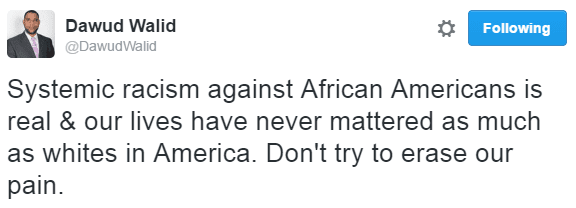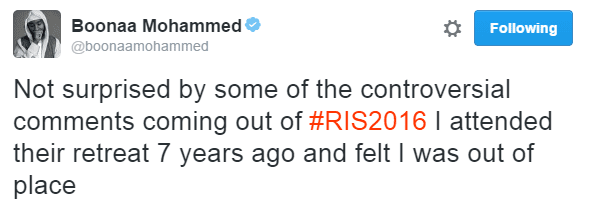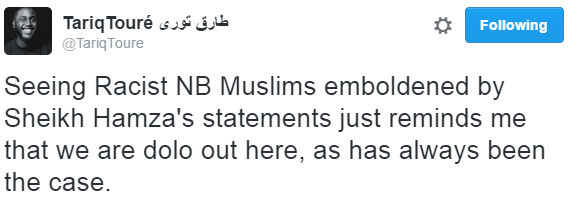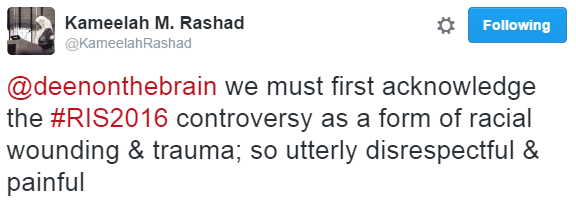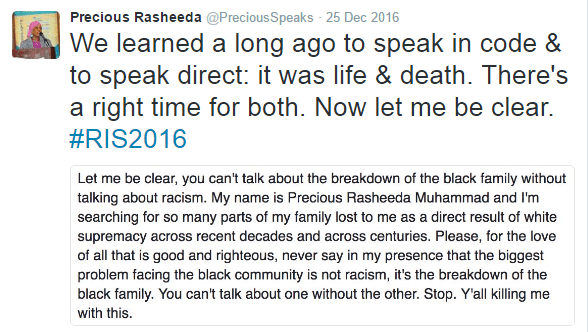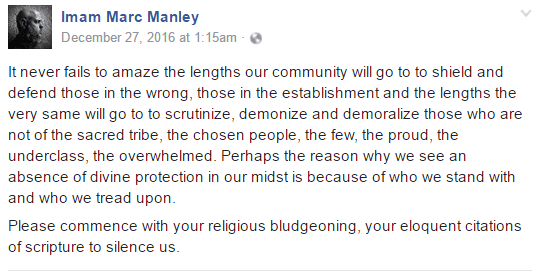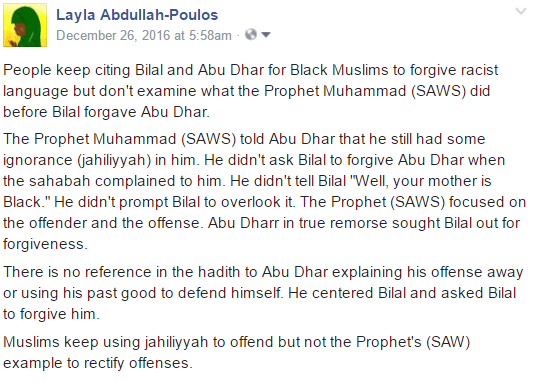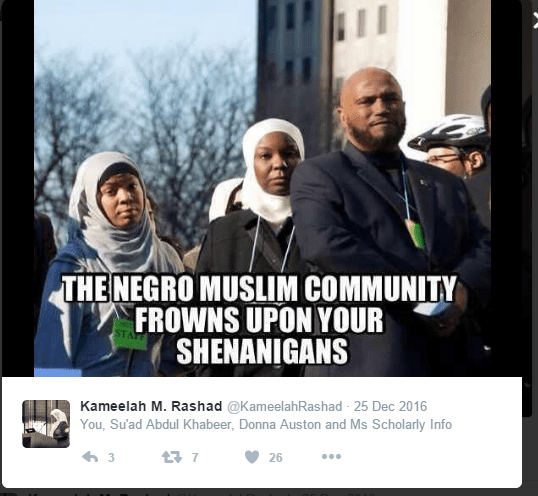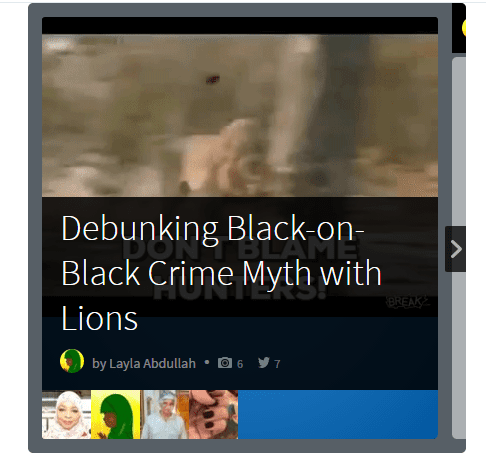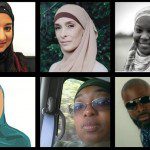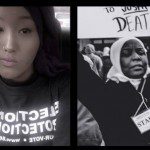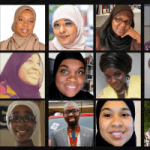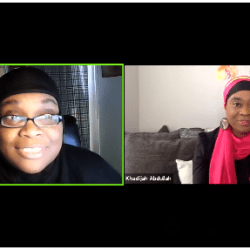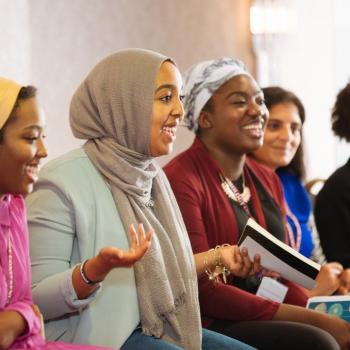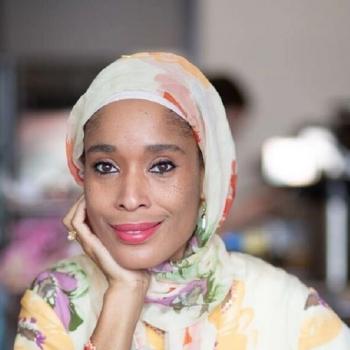Black Muslim Twitter
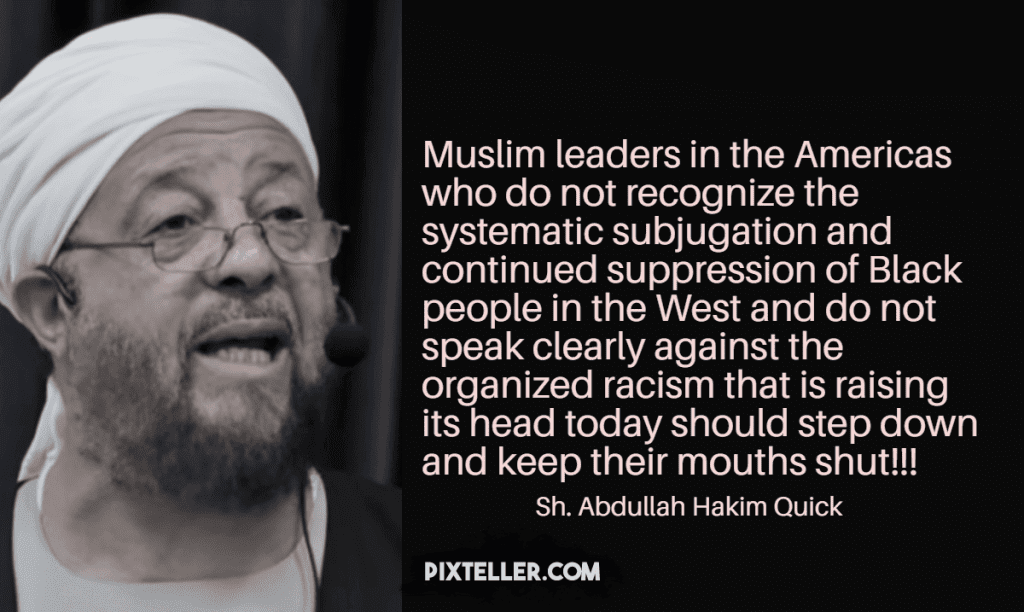
Social media can be a powerful platform to shed a lens on issues and enhance the voices of social groups typically ignored by the larger society. African Americans became especially savvy in utilizing Twitter to create a cohesive voice and influence about social issues like racism. Commonly known as “Black Twitter,” the implementation of tweets, hashtags and satirical memes often extend to other social media like Facebook and Instagram.
African American Muslims demonstrated their acumen in utilizing social media to assert their voices and clarify their standpoints about the scholar’s initial statements and responses at the convention. Black Muslims took to social media to delineate the damaging connotations of the utilization and normalization of racially-fueled rhetoric in a Muslim setting:
Black Muslim scholars, writers, thinkers, and activists swiftly outlined ways that the country’s racial language permeates in Muslim communities and their determination to resist it:
Black Muslims also pushed back on attempts to mitigate offenses through the usual defensive tactics employed in American racial dialogue:
Black Muslim Twitter also used traditional methods of satire to address the issue:
Margari Aziza wrote a brilliant metaphorical analysis of the “Black-on-Black crime” myth purported during the convention using lions:

Black Muslim Twitter reveals the strength of members of an American Muslim cultural identity to resist not only erasure but an extension of systemic racism into the deen. The tweets and posts identified and countered racially problematic language with the potential to foster generalizations, misconceptions, and myths about Blacks in the country. The voices of Black Muslims injected into the national and international dialogue disquieted endeavors to stifle the issue and contested attempts to defend damaging rhetoric. They showed little tolerance for employing tactics to shift centering away from those traumatized and made clear the need to effectively address larger issues of Muslim intracultural racism and anti-Blackness.

